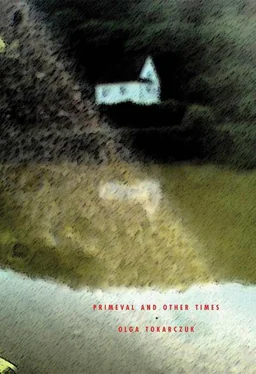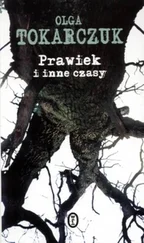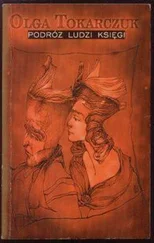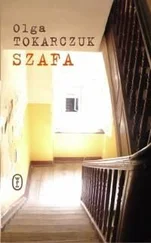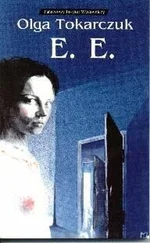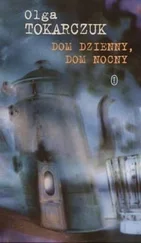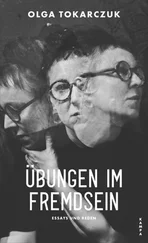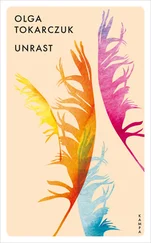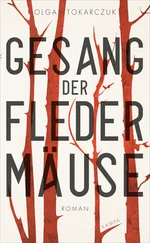In the year of the apple tree the flowers bloom briefly, but most beautifully. Often the frost beheads them or violent winds shake them off. There are lots of fruits, but they are small and not very impressive. Seeds roam far from the place of their birth: dandelion clocks cross the stream, grasses fly over the forest to other meadows, and sometimes the wind even carries them across the sea. Animal litters are weak and not large, but those that survive the first few days grow into healthy, clever specimens. Foxes born during apple-tree time do not hesitate to approach henhouses, and the same is true of falcons and martens. Cats kill mice not because they are hungry, but for the sake of killing, aphids attack people’s gardens and butterflies assume the brightest colours on their wings. Apple-tree summers give birth to new ideas. People tread new paths. They fell forests and plant young trees. They build weirs on rivers and buy land. They dig the foundations for new houses. They think about journeys. Men betray their women, and women their men. Children suddenly become adult and leave to lead their own lives. People cannot sleep. They drink too much. They take important decisions and start doing whatever they have not done until now. New ideologies arise. Governments change. Stock markets are unstable, and from one day to the next you can become a millionaire or lose everything. Revolutions break out that change regimes. People daydream, and confuse their dreams with what they regard as reality.
In a pear-tree year nothing new happens. Things that have already begun continue. Things that do not yet exist gather their strength in non-existence. Plants strengthen their roots and trunks, and do not soar upwards. Flowers bloom slowly and idly, until they are large. There are not many roses on a rose bush, but each of them is as big as a human fist. So are the fruits in the time of the pear tree – sweet and fragrant. The seeds fall where they grew, and instantly put down strong roots. The ears of corn are fat and heavy. If it weren’t for man, the weight of the seeds would crush them to the ground. Animals and people grow a layer of fat, because the barns are bursting with crops. Mothers give birth to big babies, and twins are born more often than usual. Animals, too, have large litters, and so much milk in their teats that they are able to feed their young. People think about building houses, or even entire cities. They draw plans and measure the ground, but they do not get down to work. The banks show enormous profits, and the warehouses of large factories are full of products. Governments grow stronger. People daydream, and finally notice that each of their dreams is coming true – even once it is already too late.
Paweł had to take several days’ leave from work because of his father’s death. His father died on the third day. It looked as if the end had already come, but an hour later old Boski got up and walked to the Highway. He stood by the fence and nodded. Paweł and Stasia took him by the arms and led him back to bed. For those three days their father said nothing. Paweł thought he was looking at him beseechingly, as if he wanted something. But Paweł reckoned he had done everything he could. He was with him the whole time, giving him things to drink and changing his sheets. How else you can help a dying father he didn’t know.
Finally old Boski died. Paweł dozed off at dawn, and when he awoke an hour later, he saw that his father was no longer breathing. The old man’s small body had caved in, gone floppy like an empty sack. There was no doubt there was no longer anyone inside it.
But Paweł did not believe in the immortal soul, so he found this sight appalling. He was seized with horror that soon he, too, would change into a lifeless scrap of flesh, and that would be all that was left of him. Tears fell from his eyes.
Stasia behaved very calmly. She showed Paweł the coffin that their father had made for himself. It was leaning against a wall in the barn. It had a lid made of shingle.
Now Paweł had to arrange the funeral and – like it or not – go and see the parish priest.
He met him in the presbytery courtyard, by the car. The priest invited him into a cool, gloomy office, where he sat down at a shiny polished desk. He spent a long time looking for the right page in the registry of deaths, and painstakingly recorded old Boski’s details there. Paweł stood by the door, but as he didn’t enjoy feeling like a supplicant, he came up to a chair by the desk and sat down.
“How much is it going to cost?” he asked.
The priest put down his pen and looked at him closely.
“I haven’t seen you in church for years.”
“I’m an atheist, sir.”
“Your father wasn’t easy to find at mass either.”
“He always went to Midnight Mass at Christmas.”
The priest sighed and stood up. He started pacing the office, snapping his fingers.
“My God,” he said, “he went to Midnight Mass. That’s just not enough for a decent Catholic. ‘Remember to keep the Sabbath day holy’ – that’s what the Scripture says, doesn’t it?”
“I’ve never bothered with all that, sir.”
“If in the past ten years the deceased had taken part in each Sunday holy mass and put the proverbial zloty on the collection plate, do you know how much would have accumulated?”
The priest did some mental arithmetic and then said:
“The funeral will cost two thousand.”
Paweł felt the blood rush to his head. He saw red spots before his eyes.
“Then fuck the whole thing,” he said and sprang to his feet.
In a split second he was at the door, grabbing the handle.
“Well, all right, Boski,” he heard from the desk. “Let’s make it two hundred.”
When old Boski died, he found himself in the Time of the Dead. In some way this time belonged to the cemetery in Jeszkotle. On the cemetery wall there was a plaque on which was clumsily engraved:
God sees
Time escapes
Death pursues
Eternity waits
When Boski died, he immediately realised he had made a mistake; he had died badly, carelessly, that he had made a mistake in dying and that he would have to go through the whole thing again. He also realised that his death was a dream, just like life.
The Time of the Dead imprisoned those who naively reckoned you don’t have to learn death, those who had failed death like an exam. And the more the world moved forwards, the more it extolled life, the more firmly attached to life it was, the larger a crowd prevailed in the Time of the Dead and the noisier the cemeteries became. For only here did the dead gradually gain consciousness after life and find they had lost the time granted to them. Only after death did they discover the secret of life, and it was a futile discovery.
Ruta made bigos stew for Christmas and threw a handful of cardamom pods in it. She threw in cardamom because its seeds were beautiful – they had a perfect shape, they were shiny black and aromatic. Even their name was beautiful. It sounded like the name of a faraway country – the Kingdom of Cardamom.
In the stew the cardamom lost its black sheen, but its aroma pervaded the cabbage.
Ruta was waiting for her husband to come home for Christmas dinner. She lay on the bed and painted her nails. Then from under the bed she took out the German newspapers that Ukleja brought home, and looked through them with great interest. What she liked most were the pictures of faraway countries. They showed views of exotic beaches, beautifully sun-tanned men and slender, smooth women. Ruta understood just one word in the entire newspaper: “Brazil.” This country was Brazil. In Brazil a great river flowed (a hundred times bigger than the Black and White Rivers combined) and a vast forest grew (a thousand times bigger than the Great Forest). In Brazil the cities enjoyed all kinds of riches, and the people looked happy and contented. Suddenly Ruta longed for her mother, though it was the middle of winter.
Читать дальше
